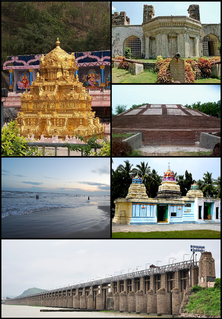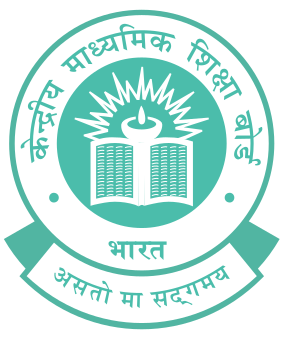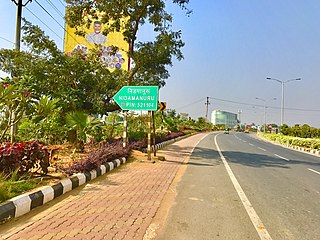
Education in India is primarily managed by state-run public education system, which fall under the command of the government at three levels: federal, state and local. Under various articles of the Indian Constitution and the Right of Children to Free and Compulsory Education Act, 2009, free and compulsory education is provided as a fundamental right to children aged 6 to 14. The approximate ratio of public schools to private schools in India is 7:5. Major policy initiatives in Indian education are numerous. Up until 1976, education policies and implementation were determined legally by each of India’s constitutional states. The 42nd amendment to the constitution in 1976 made education a ‘concurrent subject’. From this point on the central and state governments shared formal responsibility for funding and administration of education. In a country as large as India, now with 28 states and eight union territories, this means that the potential for variations between states in the policies, plans, programs and initiatives for elementary education is vast. Periodically, national policy frameworks are created to guide states in their creation of state-level programs and policies. State governments and local government bodies manage the majority of primary and upper primary schools and the number of government-managed elementary schools is growing. Simultaneously the number and proportion managed by private bodies is growing. In 2005-6 83.13% of schools offering elementary education were managed by government and 16.86% of schools were under private management. Of those schools managed privately, one third are ‘aided’ and two thirds are ‘unaided’. Enrolment in Grades 1-8 is shared between government and privately managed schools in the ratio 73:27. However in rural areas this ratio is higher (80:20) and in urban areas much lower (36:66).

Matriculation is the formal process of entering a university, or of becoming eligible to enter by fulfilling certain academic requirements such as a matriculation examination.

Krishna district is one of the nine districts in the Coastal Andhra region of the Indian state of Andhra Pradesh. Machilipatnam is the administrative headquarters and Vijayawada is the most populated city in the district. It has an area of 8,727 km2 (3,370 sq mi) and had a population of 4,529,009 as per 2011 census of India. It is bounded by West Godavari on the east, Bay of Bengal on the South, Guntur and Suryapet districts in the west and a portion of it also borders with the state of Telangana.
The Secondary School Certificate, also called SSC or Matriculation examination, in madrasah education Dakhil is a public examination in India, Bangladesh and Pakistan conducted by educational boards for the successful completion of the secondary education exam in these countries. Students of 10th grade/class ten can appear in these. It is equivalent to GCSE in England and first two years of high schools in United States.
An examination board is an organization that sets examinations, is responsible for marking them, and distributes results. Some are run by governmental entities; some are run as not-for-profit organizations.

Vijayawada, also known as Bezawada is a city in the Indian state of Andhra Pradesh. Located about 350 km (220 mi) south west of state's administrative capital Visakhapatnam, 275 km (171 mi) east of Hyderabad and 450 km (280 mi) north of Chennai. It lies on the banks of Krishna river surrounded by the hills of Eastern Ghats known as Indrakeeladri Hills in Krishna district. It geographically lies on the center spot of Andhra Pradesh. The city has been described as the commercial and educational capital of Andhra Pradesh, second largest city in Andhra Pradesh and is one of the fastest growing urban areas in India.
Velagapudi Ramakrishna Siddhartha Engineering College or VRSEC was the first private institution to offer undergraduate education in engineering in Andhra Pradesh, India and first private college to offer PG Programmes in engineering in Andhra Pradesh in the year 1977. The college was approved to be an autonomous institution by Acharya Nagarjuna University in the year 1977.

Gudivada is a town in Krishna district of the Indian state of Andhra Pradesh. It is a municipality and the headquarters of Gudivada mandal in Gudivada revenue division. It is one of the cities in the state to be a part of Andhra Pradesh Capital Region. It is Twenty sixth most populous city in the state with a population of 118,167.

R V R & J C College of Engineering is an engineering college in Guntur, in the Indian state of Andhra Pradesh. It offers graduate (Masters) and undergraduate education (Bachelors) courses in engineering and technology. It is located in the west suburban region of Guntur City, India.
The Higher Secondary Certificate (HSC/INTERMEDIATE) is a public examination in Bangladesh, India, Nepal and Pakistan. HSC is equivalent to GCE A Level in England and 3rd and 4th year of high Schools in the United States.

Dr. NTR University of Health Sciences, formerly Andhra Pradesh University of Health Sciences, is a public university in the city of Vijayawada, Andhra Pradesh, India.

As per the 2011 census of India, Andhra Pradesh has an overall literacy rate of 67.35%, significantly lower than the overall national average of 74.04%. Among the Indian states and union territories, it stands at 32nd position. During the same census, there are a total of 29,859,982 literates: 16,549,514 males and 13,310,468 females. In terms of district-wise literates, East Godavari has the most with 3,348,077 and Vizianagaram has the least with 1,238,388. While, in terms of district-wise literacy rates, West Godavari stands top with 74.32% and Vizianagaram at bottom with 58.89%. The government also implements fee reimbursement scheme for the economically backward sections of the state.

The Central Board of Secondary Education (CBSE) is a national level board of education in India for public and private schools, controlled and managed by Union Government of India. There are approximately 21,271 schools in India and 220 schools in 28 foreign countries affiliated to the CBSE. From 309 schools in year 1962, as on year 2019, CBSE has 21,271 schools and 228 schools in 25 foreign countries. All schools affiliated to CBSE follow the NCERT curriculum.

Nidamanuru is a Town of Vijayawada in Krishna district of the Indian state of Andhra Pradesh. It is located in Vijayawada (rural) mandal of Vijayawada revenue division. As per the G.O. No. M.S.104 (dated:23-03-2017), Municipal Administration and Urban Development Department, it became a part of Vijayawada metropolitan area.

The Board of Intermediate Education, Andhra Pradesh (BIEAP) is a board of education in Andhra Pradesh, India. Established in 1971, it was located in Hyderabad, situated in the composite Andhra Pradesh state. The board is now located in Vijayawada after state reorganization in 2014. The board offers two-year courses in 85 streams and courses and conducts examinations.
All India Secondary School Examination, commonly known as board exams, is a centralized public examination that students in schools affiliated with the Central Board of Secondary Education in India take after class 10. The board conducts the examination during the period of February every year even after implementing the ambitious project of Continuous and Comprehensive Evaluation. Now that the board has ended the Continuous and Comprehensive Evaluation pattern as a result Joint Employment Test, NEET, etc., the exam is conducted by the National Testing Agency instead. In this exam, Mathematics, Science and S.St are compulsory with any two languages. Students can also opt skill subject such as information technology, painting, yoga, music or artificial intelligence. Successful candidates are awarded the Secondary School Completion Certificate, a Statement of Marks, and a Migration Certificate stating that the candidate has completed Secondary Schooling and can pursue higher education. For the 2016-17 academic year, the Central Board of Secondary Education has revived the old system of syllabus and marking scheme India has state exams and central exams.

Madhya Pradesh Board of Secondary Education is a board of school education in Madhya Pradesh State of India.

Siddhartha Medical College is a medical school in Vijayawada, Andhra Pradesh. It provides undergraduate and graduate medical education in AP. It is located in Gonadal, Vijayawada, Andhra Pradesh.
The Teacher Eligibility Test, known as TET, is the minimum qualification required in India for a person to be eligible for appointment as a teacher for Classes I to VIII. The test is mandatory for teaching jobs in Indian government schools. The TET is conducted by both the central and state governments of India. Most states conduct their own TET. The test is conducted to meet the objectives of the Right of Children to Free and Compulsory Education Act, 2009. The TET certificate is valid for lifetime.












